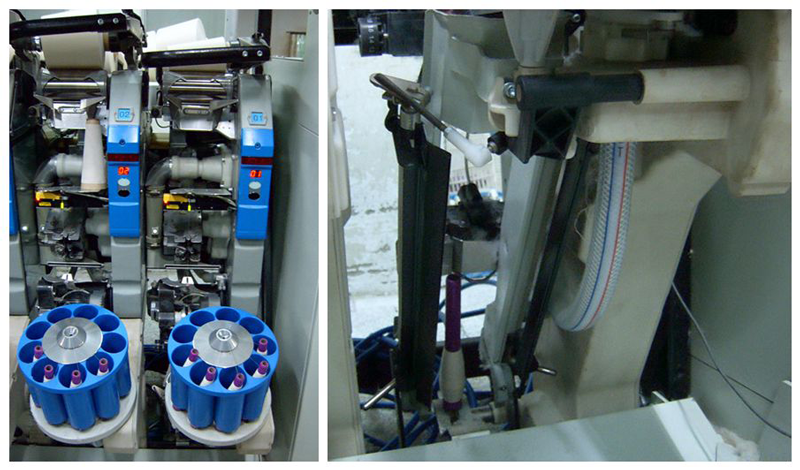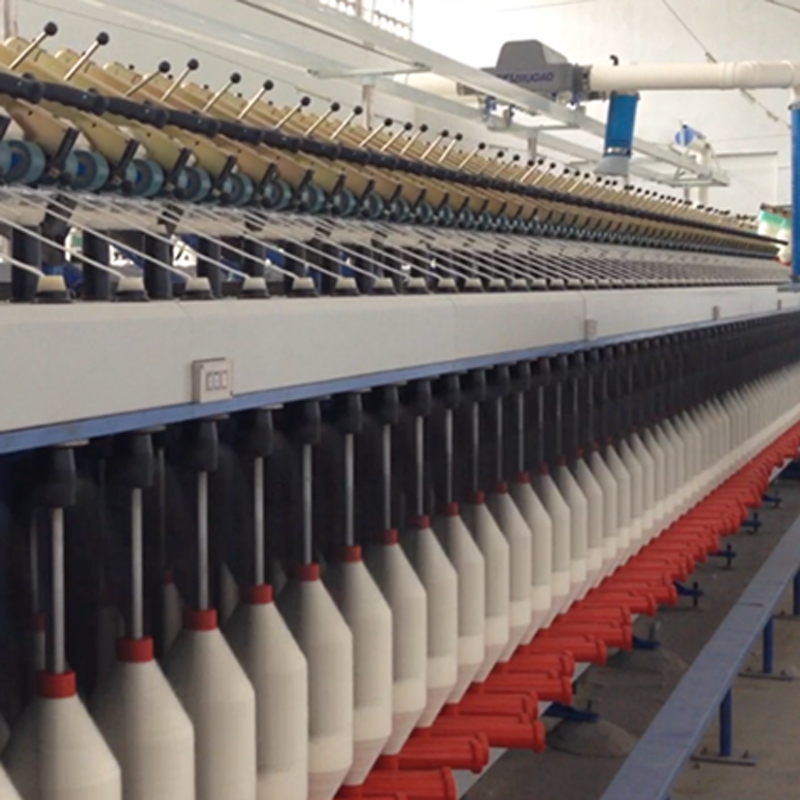This French company is revolutionising fashion waste recycling with cutting-edge tech.
In the south of France, futuristic robots are saving tonnes of waste from landfill by ripping up shoes. Multi-Mixer

Europe currently recycles just one per cent of its used textiles.
Shoes are composed of multiple difficult-to-separate materials like polyester, foam and leather, and so are particularly difficult to recycle.
But the recycling industry is rapidly innovating.
Launched in Hendaye in southwest France, Cetia is the world's first ‘innovation platform’ that can automatically remove the sole of a shoe.
“This machine uses a near infrared sensor to detect the material of the garment quite accurately - whether it's 80 per cent cotton, 20 per cent polyester or 50/50,” says Chloé Salmon Legagneur, director of Cetia.
“It allows us to detect this and to put together all the materials that have the same composition in the right bin,” she explains.
The European Union has set ambitious textile recycling targets. By 2030, it intends to set a minimum content of recycled fibres in the composition of textiles.
But clothes and shoes are difficult to dismantle and sort - meaning when they are recycled, it is often into household padding or bitumen, which can be used for things like road surfacing and roofing.
The industry wants this to change.
“Brands tell us ‘I want the material from my products to be recycled in my industry, not as insulation or flooring’,” says Legagneur.
Cetia’s machine uses infrared technology to recognise the colour and composition of the fabric when two materials are mixed. The sorted garments pass through another machine that separates the ‘hard points’ - such as zips and buttons - from the fabric.
Further down the hall, another laser-cutting machine ensures that the fabric is not damaged when separated from other components.
Another artificial intelligence (AI) powered machine can distinguish a pocket from a collar, or a sleeve from a pair of trouser bottoms.
This cutting-edge equipment costs nearly €2 million.
To facilitate recycling, some brands, including Decathlon - one of Cetia's first supporters - think right from the design stage “about the number of materials used, disruptive elements, etc.”, explains Clémence Goubet, sustainable footwear development manager at the sports retailer.
The brand is aiming for 100 per cent eco-designed products by 2026.
This project, called Re-shoes, is “essential”, according to Véronique Allaire-Spitzer, director of the Regeneration Division of eco-organisation Refashion.
“Until we have a solution for preparing [the material for recycling], we won't have a [recycled textiles] sector” in France.

New Type Carding Machine The circular textiles organisation is injecting €900,000 to finance Cetia's projects. France’s Nouvelle-Aquitaine region, where Cetia is based, is contributing nearly a million.